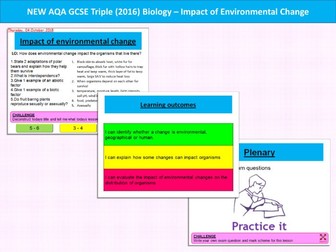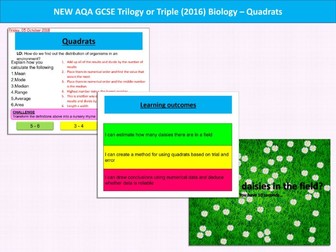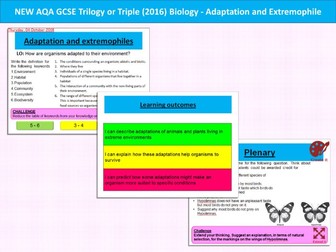NEW AQA GCSE Triple (2016) Biology – Impact of Environmental Change
<p>This lesson is designed for the New AQA Biology GCSE, specifically the Ecology scheme of work. It is aimed at a higher ability class but is easily differentiated downwards. This resource contains many of the PiXL think hard strategies to aid in students understanding and retention as well as to improve their application skills.</p>
<p>This resource contains:<br />
1 PPT<br />
1 Worksheet containing starter, news article and mindmap<br />
1 Exam question worksheet</p>
<p>Starter - Quick quiz to assess how well students have memorised their KO.<br />
Task 1 - Word fill activity. Students can self or peer assess.<br />
Task 2 - Students to highlight the environmental changes based on what type they are. Challenge is to begin linking the changes and explain on the arrows how they link<br />
Task 3 - Watch the video clip and students to read the news article They are then to answer questions. Students are then to write a letter using their knowledge and understanding to persuade the government to fund research into the decline of bees.<br />
Plenary - Students to complete exam questions which can be peer or self assessed.</p>


